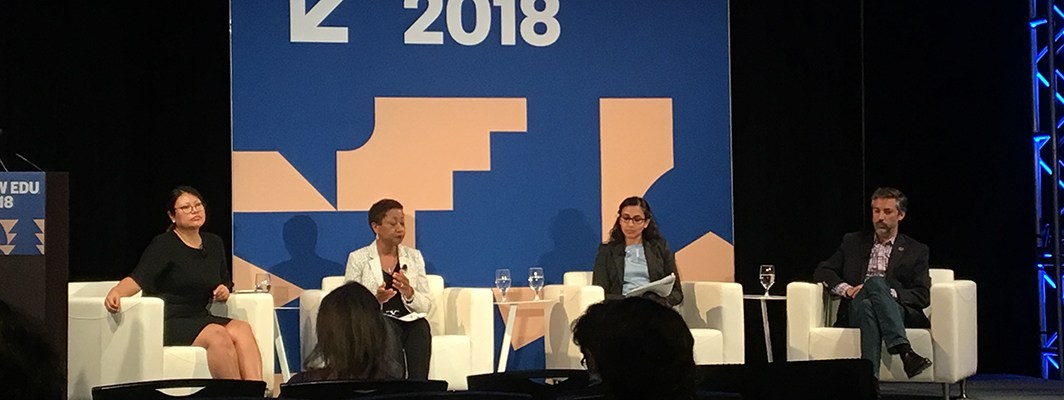SXSWEDU 2018 wrapped up last week and once again I was struck by the wealth of information, experience, and innovation being shared across so many sessions. As usual, my focus was on adult learners and workforce development. And as I listened, I heard a lot of important themes — equity, the use of data to drive personalization, community partnerships — as well as many innovative ideas being applied to serving lower-skilled adults — credentialing, adult charter schools, and technology-enabled career pathways.
One of the last sessions I went to brought it all together for me. A group of philanthropists held a session called
Philanthropy 2.0 for Higher Education & Workforce Development, during which each panelist pointed to one key thing they thought should characterize future philanthropic funding: systems change. They believe it’s time to move beyond thinking about discreet solutions to individual problems and instead consider ways to improve root causes.
So I thought more about those prevailing themes I was hearing at SXSWEDU, and reflected on what it would mean to take a systems view.
If we take a systems view on equity, for example, it would mean that we’d look for ways to make sure we aren’t creating solutions that perpetuate the inequities that already exist. Credentialing is a great example of this. In this movement to consider alternative ways of earning credentials and recognizing skills, it is important to ensure low-income workers and people of color who have had difficulty participating in and accessing our current post-secondary system are able to fully participate in this new system. A systems view would take into account access points across the full post-secondary ecosystem and consider ways to empower the traditionally underserved to build skills and earn credentials.
Looking back on sessions I attended at SXSWEDU, I saw several good examples of organizations taking a systems view as they serve adults looking to advance in the workforce, including:
- Academy of Hope - Lecester Johnson, CEO of Academy of Hope, explained in her session why the Academy chose to transition to an adult charter school. By broadening their view of how they could serve their students as members of local workforce, they added critical job training services in the health and hospitality sectors and increased GED completions and job placements by over 40 percent.
- ALLIES - In the same session, Ilse Pollet from Alliance for Language Learners’ Integration, Education and Success (ALLIES) described the collaborative work they have been able to accomplish on behalf of immigrants by understanding the ecosystems that serve them. Public and private sector efforts in education, health care, and workforce placement are the result of the partnerships forged by this systems view.
- Texas Workforce Commission - Anson Green, Director of Adult Education and Literacy at the Commission, described gains in GED completions, student retention, and job placements as due to a shift in the agency’s mindset to a broader, more “real life” view of what students needed out of their GED. What he describes as “the job they really hire us to do” forced them to look at other support services needed, including family services, job training, and other middle skills.
Like that group of philanthropists, I challenge those of us working to make an impact on the lives of underserved adult workers to take the long view, to think about the systems our programs operate in, and think about ways to change those systems. It’s not about a single piece of technology. It’s not about a single innovation. It’s about systems change.
